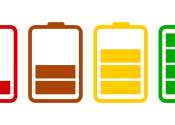Will the future's super batteries be made of seawater?
We all know the rechargeable and efficient lithium ion (Li-ion) batteries sitting in our smartphones, laptops and also in electric cars.

We all know the rechargeable and efficient lithium ion (Li-ion) batteries sitting in our smartphones, laptops and also in electric cars.
Materials Science
Jan 23, 2020
0
220

Toxic radioactive substances have once again been detected in groundwater at the crippled Fukushima nuclear plant, its Japanese operator said on Sunday, the latest in a series of incidents at the tsunami-battered complex.
Environment
Jul 7, 2013
3
0

Woods Hole Oceanographic Institution (WHOI) marine chemist Ken Buesseler began sampling and analyzing seawater surrounding the Fukushima Dai-ichi nuclear power plant three months after the 2011 disaster. Today, he launched ...
Environment
Jan 15, 2014
2
0

An ultra-high-resolution technique used for the first time to study polymer fibers that trap uranium in seawater may cause researchers to rethink the best methods to harvest this potential fuel for nuclear reactors.
Materials Science
Dec 17, 2015
0
100

The world's oceans are becoming noisier thanks to pollution, with potentially harmful effects for whales, dolphins and other marine life, US scientists said in a study published Sunday.
Environment
Dec 20, 2009
5
0

Marine algae that turn carbon dissolved in seawater into shell will produce thinner and thinner shells as carbon dioxide levels increase.
Environment
Aug 9, 2011
0
0

Thousands of small "pyramids" are being planted off the Philippines' famous Boracay resort island in an effort to bring its nearly destroyed coral reefs back to life, an environment group said Thursday.
Environment
Feb 9, 2012
0
0

Seawater circulation pumps hydrogen and boron into the oceanic plates that make up the seafloor, and some of this seawater remains trapped as the plates descend into the mantle at areas called subduction zones. By analyzing ...
Earth Sciences
Feb 26, 2012
5
0

(Phys.org)—A team of Canadian researchers has found that one species of barnacles mate by ejecting sperm into seawater while another catches it – a process known as spermcasting. Prior to this research, scientists had ...

Little attention has been paid to the use of antibiotics in the aquaculture industry as one reason for the increase in bacteria resistant to antibiotics and the spread of such resistance to other bacteria.
Ecology
Nov 19, 2012
0
0